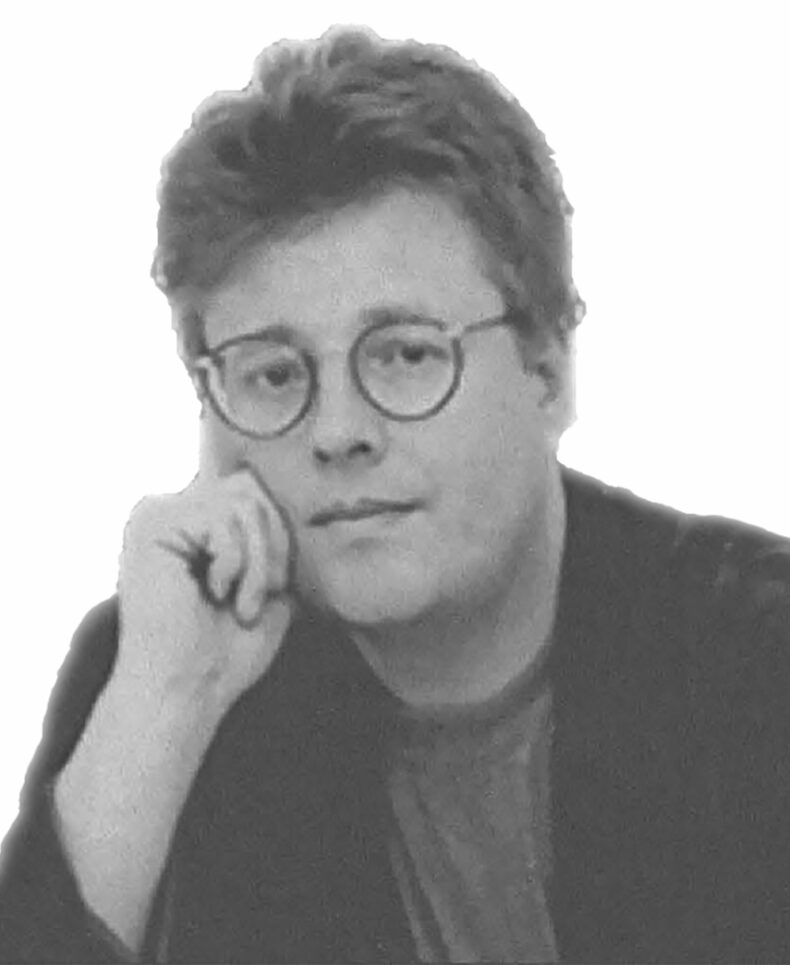
Stieg Larsson is best known – and known the world over – for his Millennium Trilogy: The Girl With the Dragon Tattoo, The Girl Who Played With Fire and The Girl Who Kicked the Hornet’s Nest, three novels about the fictional character Lisbeth Salander, which sold in their millions and became hugely successful films. Sadly, Stieg did not enjoy any of this success: the books were published posthumously after he died, 20 years ago this November.
But for many years, from the early 1980s, Stieg was Searchlight’s Swedish correspondent who collaborated with us on countless investigations into the far right. He was a colleague, a comrade and a dear friend. Searchlight’s former European Editor Graeme Atkinson wrote this tribute at the time:
It was with tremendous shock that we learnt of the sudden death, from a heart condition, of our longtime Swedish correspondent Stieg Larsson on 9 November at the still young age of 50.
Stieg, who was also the chief editor of Searchlight’s Swedish sister magazine Expo, was a leading international anti-fascist. He will be terribly missed by all who had the unforgettable privilege of knowing him, working with him and being one of his friends and comrades.
Stieg managed to pack a vast amount of experience into his all-too-short 50 years, beginning with his poor upbringing in the forests of northern Sweden. His horizons were unlimited and, after enthusiastically doing military service, he travelled widely in Africa, witnessing bloody civil war in Eritrea at first hand.
On his return to Sweden, he took up his profession of journalism, working as a news journalist, feature writer and brilliant graphics artist for the Swedish news agency TT. To his work he brought a razor-sharp mind, and covered every major world news story as it broke and unfolded for almost two decades. His artistic abilities extended into the realms of painting and layout.
At the same time as working for TT, and with the greatest conviction, he put his talents at the disposal of the anti-fascist movement, again as a writer and illustrator, but most notably as a researcher whose knowledge of the Swedish and international far right could only be described as encyclopaedic.
This expertise he constantly made available to the growing international anti-fascist network. His journalistic output for the network of anti-fascist publications, especially Searchlight for which he had written since the early 1980s, was huge, always guided by an acute news sense and a talent for separating disinformation from fact to get to the bottom of a situation.
Stieg was unique and his contribution to the anti-fascist movement, the left and the cause of a better, more humanistic and more egalitarian society was inestimable. He never abandoned the boundless optimism, hopes and ideas that first led him to engage in political activity.
He was the incarnation of internationalism with a record that was unmatched, whether it was his work in solidarity with Vietnam, his support for the Grenadian Prime Minister Maurice Bishop, whose socialist government was so cruelly destroyed by infighting, murder and US invasion, or his later life’s work of energetically combating racism, anti‑Semitism, fascism and discrimination of all kinds, especially against women.
The seriousness of the issues he dealt with never caused him to lose his ability to smile or to bury the sense of humour and warmth that fired his endless collection of hilarious stories and anecdotes. It is hard to imagine that he will never again sit with us and share them.
A shy person, Stieg never lost his modesty or his capacity to recognise good in others. The time he always had for other people – often accompanied by the invitation “let’s meet over a cup of coffee and talk about this” – made him a much‑loved person.
Stieg made big financial and health sacrifices for the anti-fascist cause, to which he gave everything and asked for almost nothing in return. For him, it was results that led to a better world that made his sacrifices worthwhile.
His greatest rewards he saw as his summer trips to the north of Sweden, the beautiful days when he and his family went sailing or rested at their rented summer house in the Stockholm Archipelago, the hours he spent in the bookshops of London when the chance afforded, and a late-night glass of malt whisky after a hard day’s work.
It is an alarming irony that Stieg was taken from us just as he achieved his greatest ambitions: the consolidation of Expo and the development of its staff, and the publication of his crime novels – he had just signed a major contract to have a series of novels published. Those who read them will see Stieg’s integrity, fearlessness and sense of justice in his young heroine, Lisbeth Salander, although her ways of putting things right are a far cry from Stieg’s thoughtful and gentle manner.
Stieg’s advice to those he leaves behind might well have been that of his famous fellow Swede Joe Hill: “Don’t mourn, organise!”, although with the added down-to-earth injunction: “But have some fun doing so!”
Our thoughts are with his family, whose support, advice, companionship and sometimes criticism were always so vital to him, and we extend our deepest sympathy to our comrades in Expo at this very dark and painful moment.
Farewell, Stieg, and Salud!
